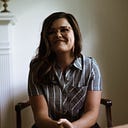The Issue With Billie Eilish’s Darkness
17-year-old dark pop singer Billie Eilish released her debut full length album this month WHEN WE ALL FALL ASLEEP, WHERE DO WE GO? It’s broken streaming records and received praise from artists like Demi Lovato, Niall Horan, and Dave Grohl.
The first song I heard from Eilish was “bellyache” and later on,“ocean eyes.” I remember thinking I liked her voice and the vibe, but there wasn’t anything super special to me about it. She then put out “when the party’s over” in 2018 and her sound clicked for me. I’m a huge fan of dark pop — from Sia’s early 2000s releases, to Banks, to Lorde — and this felt like a young addition to this supergroup.
But when she released “bury a friend,” and then her full album, I realized that she goes into a depth of darkness that’s not only treacherous, but unreachable.
“She’ll want the Devil on her team.”
“Step on the glass, staple your tongue. Bury a friend, try to wake up. Cannibal class, killing the son. Bury a friend, I wanna end me.”
“The friends I’ve had to bury. They keep me up at night.”
“I’m that bad type. Make your mama sad type. Make your girlfriend mad tight. Might seduce your dad type.”
For an artist who’s a part of a generation that can sometimes be criticized for being TOO sensitive to micro-aggressions, trigger words, etc., it’s confusing to me that she would be so celebrated for writing songs that romanticize murder, suicide, and… the devil.
A few weeks ago I tweeted:
& this
You’re not Jordan Peele. You’re a recording artist.
How much of a responsibility do artists have in shaping the lives of their listeners?
As an artist myself, there’s nothing more important to me than not caging your feelings and expressing authentically what’s inside of you. But artistry is not inward and private. It’s external, effective, and permeating. There has to come a point where your audience’s reception to your work is put into consideration.
Billie Eilish is 17, meaning the majority of her listeners are Gen Z and Millennial. Think about how shaping and formative these years are (young teens to young adults in their 30s).
I think about the music I was listening to as a teenager. I’ll never forget the first time I heard this lyric from “9 crimes” by Damien Rice:
Is that alright?
Give my gun away when it’s loaded
Is that alright?
If you don’t shoot it how am I supposed to hold it
This song is beautiful, but after listening to it, I had to climb out of it a bit. I’m not saying Damien Rice shouldn’t have written those words and that he’s responsible for what kind of place it would put me in, but at the very least, I’m sure he had an awareness of how these lyrics would affect his audience. Not to mention, Rice was born in the early 70’s. His typical audience wasn’t someone like me. He wasn’t an emotional curator for a young generation.
Think about Billie Eilish in 2019. It’s not even that she’s writing about really dark and twisted things — she’s allowing her young audience to go to this dark place with her and feel okay about staying there.
Honestly, Eilish scares me way more than Cardi B thinking she’s a good role model for young women. I think about the artists comparable to Cardi in the ’00s I heard at middle school spring flings and how they affected me.
I remember the first time I heard “Milkshake” in a softball carpool and not understanding what I was hearing. It bothered me, but I didn’t go looking for answers. I was a big innocence self-protector back then. Mostly, risqué music was fun and a little rebellious. It wasn’t pernicious.
But listening to someone like Billie Eilish would’ve been different.
What if I was so immersed in her album when I was going through some of the hardest and most confusing things I’ve ever gone through in my formative years?
